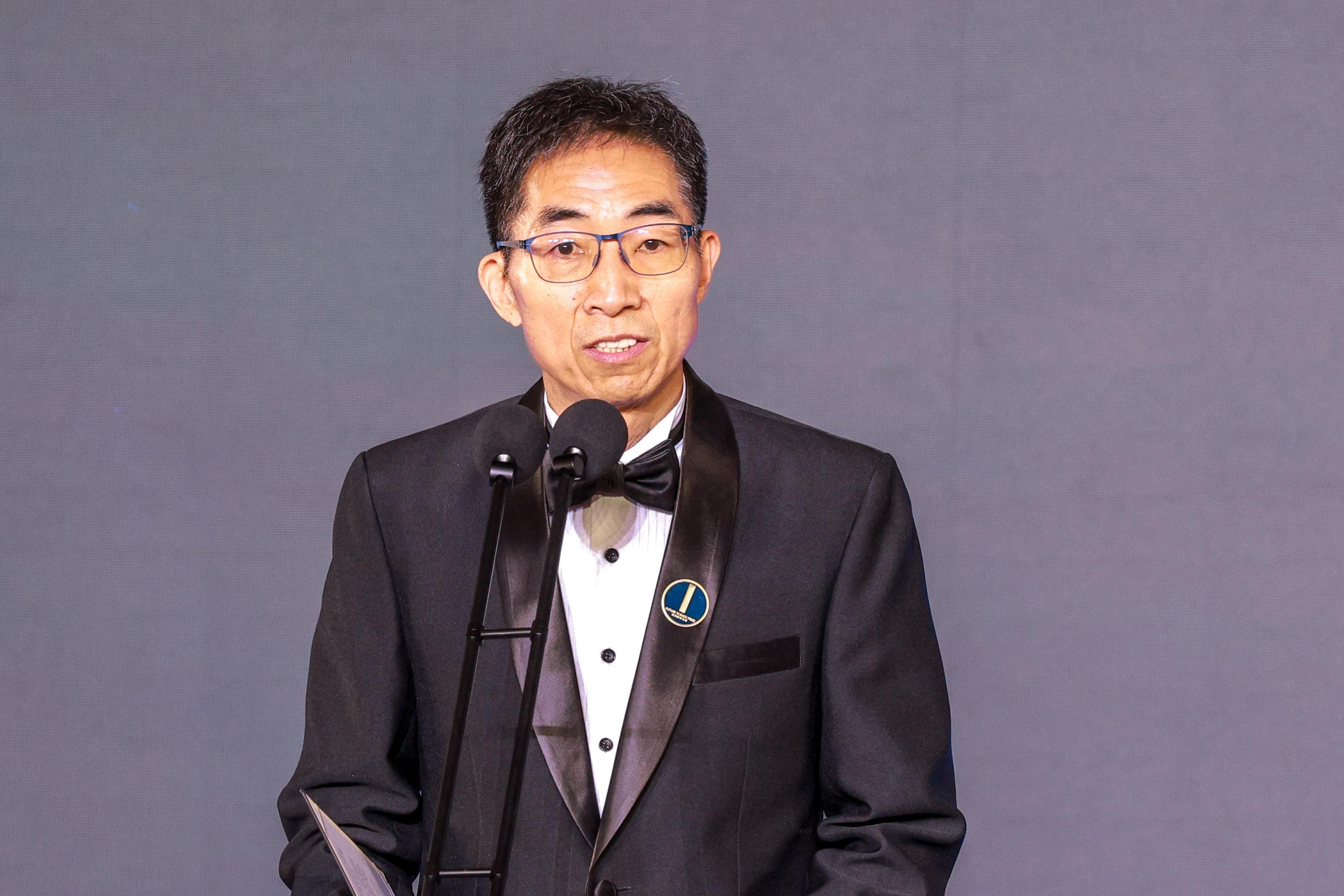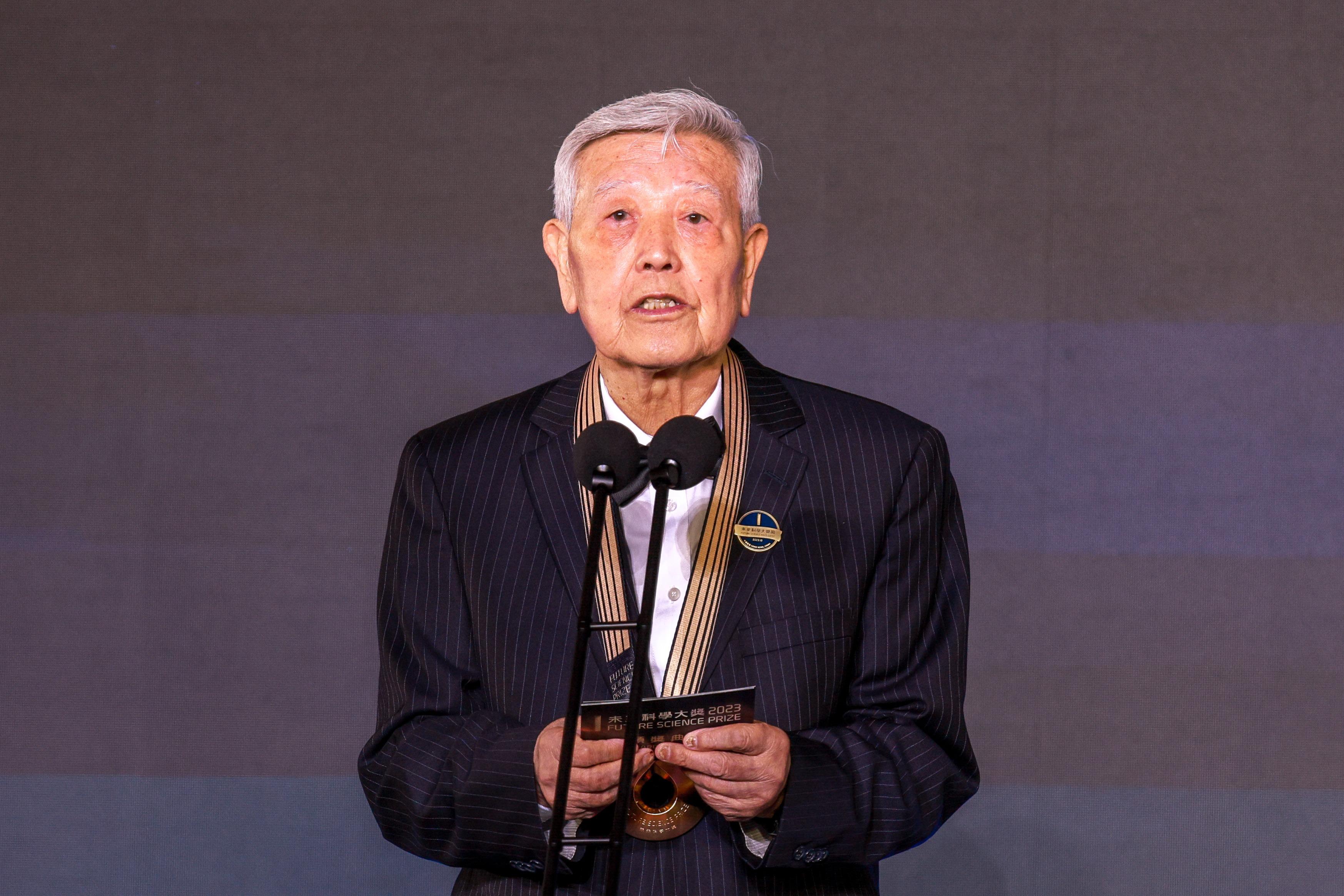 Chairman of the Science Committee of the Future Science Prize Kunliang Guan delivers a speech during the 2023 Future Science Prize awards ceremony at the Hong Kong Palace Museum on Oct 17, 2023. (ANDY CHONG / CHINA DAILY)
Chairman of the Science Committee of the Future Science Prize Kunliang Guan delivers a speech during the 2023 Future Science Prize awards ceremony at the Hong Kong Palace Museum on Oct 17, 2023. (ANDY CHONG / CHINA DAILY)
The Awards Ceremony of the 2023 Future Science Prize was held at Hong Kong Palace Museum on Tuesday, where eight scientists won prizes for their groundbreaking contributions in life science, physical science, and mathematics and computer science.
The Future Science Prize has recognized 35 scientists in its eight years of operation. This year’s edition is the most prolific, with the highest number of laureates. The age range of the laureates is also the broadest ever, ranging from seasoned scientists born in the 1940s to young scientists born in the 1990s.
The Future Science Prize was founded in 2016 as a privately funded scientific award, jointly initiated by a community of scientists and entrepreneurs. Its objective is to honor scientists who have made remarkable scientific contributions in the Chinese mainland, Hong Kong, Macao, and Taiwan
ALSO READ: Future of science
“This awards ceremony is not only a celebration of the scientists’ accomplishments but also serves as motivation for younger generations. We hope that more young individuals will be inspired to pursue careers in the field of science,” said Guan Kunliang, chairman of the 2023 Science Committee of the Future Science Prize.
The laureates of this year’s Future Science Prize shared their ideas with more than 250 students at Hong Kong Palace Museum on Tuesday morning, a few weeks after a similar exchange with students in Beijing.
At the sharing session, the laureates introduced the latest discoveries in high-temperature superconducting materials, neural networks and biology.
Zhao Zhongxian, who was awarded the prize in physical science, reflected on his groundbreaking discovery in the field of superconductivity in 1987, saying, “I am honored to serve as a steppingstone for the younger generation entering the field of science, and contribute to the advance of science and technology.”
ALSO READ: Mainland scientists sweep Future Science awards
The awards ceremony was held as part of Future Science Week, which made its debut in Hong Kong on Saturday. The four-day event also featured a two-day scientific symposium at Hong Kong Science Park, covering six sessions in life science, computer science, plant research, chemistry, physics and mathematics.
During the symposium, Gregory Winter and Michael Levitt, who won the Nobel Prize in chemistry in 2018 and 2013 respectively, took the lead in delivering keynote speeches. Dennis Lo Yuk-ming, the 2016 Future Science Prize laureate in life science, and Pan Jianwei, recipient of the 2017 Future Science Prize in physical science, also addressed the symposium.
 Zhongxian Zhao receives the Physical Science Prize at the 2023 Future Science Prize awards ceremony at the Hong Kong Palace Museum on Oct 17, 2023. (ANDY CHONG / CHINA DAILY)
Zhongxian Zhao receives the Physical Science Prize at the 2023 Future Science Prize awards ceremony at the Hong Kong Palace Museum on Oct 17, 2023. (ANDY CHONG / CHINA DAILY)
As part of Future Science Week, the 2023 Asian Young Scientist Fellowship Annual Conference was held on Monday at the University of Hong Kong. The conference brought together exceptional scientists from diverse fields, who provided valuable insights and advice to aspiring young scientists, aiming to inspire and guide them as they embark on their own scientific career paths.
READ MORE: Xi: Young scientists to blaze trail to future
The Future Science Prize was founded in 2016 as a privately funded scientific award, jointly initiated by a community of scientists and entrepreneurs. Its objective is to honor scientists who have made remarkable scientific contributions in the Chinese mainland, Hong Kong, Macao, and Taiwan.


